Kraken vs Coinbase - Which One is Better for Investors?

Navigating the world of cryptocurrency can be overwhelming with the myriad of choices available. Two of the most renowned exchanges, Kraken and Coinbase, often emerge as top contenders when investors are weighing their options
In this comprehensive post, we will delve into a detailed comparison to help you decide which platform aligns with your investment goals.
What is Crypto Exchange?
A cryptocurrency exchange is a digital platform allowing users to buy, sell, or trade cryptocurrencies for digital or other traditional currencies like US dollars or euros.
Acting as intermediaries, these exchanges help in increasing the accessibility and liquidity of cryptocurrencies, making the market dynamic and competitive.
Coinbase Overview
Founded in 2012, Coinbase has rapidly become one of the leading crypto exchanges globally. Known for its user-friendly interface, it caters predominantly to beginners.
Coinbase isn’t just an exchange; it’s a holistic platform offering various features like an educational sector called Coinbase Earn and a professional trading platform known as Coinbase Pro.
Kraken Overview
Established in 2011, Kraken is among the world's largest and oldest Bitcoin exchanges. Celebrated for its robust security measures, it serves both novice traders and seasoned professionals.
Kraken boasts a range of features such as futures trading and a unique dark pool for discreet trading, marking its space in the crypto ecosystem.
Kraken vs Coinbase Comparison
Both Kraken and Coinbase are titans in the cryptocurrency exchange arena, each offering a unique array of features and benefits. While both platforms serve the primary function of facilitating crypto trading, their methodologies differ, necessitating a detailed comparative analysis.
Kraken vs Coinbase Features
Both Kraken and Coinbase have carved their niche by offering distinctive features tailored to diverse user needs.
Kraken stands out for its advanced trading mechanisms, encompassing futures trading, margin trading, and the unique provision of a dark pool, which allows traders to place large orders discreetly without revealing their intent to the market.
This is particularly useful for institutional or high-volume traders who wish to avoid impacting the market price.
Check - Latest Offers from Kraken
On the flip side, Coinbase shines with its dual-platform approach. The standard Coinbase platform is designed for newcomers, emphasizing ease-of-use and intuitive navigation. For seasoned traders, Coinbase Pro offers a more detailed trading experience.
Additionally, Coinbase’s educational section, known as 'Coinbase Earn', is a novel initiative that empowers users to learn about different cryptocurrencies while earning rewards, bridging the knowledge gap in the crypto domain.
Currencies Supported
When considering major cryptocurrencies like Bitcoin, Ethereum, or Cardano, both Kraken and Coinbase have you covered. These platforms prominently feature most of the top 20 cryptocurrencies by market capitalization, complemented by an assortment of niche coins and tokens.
Whether you're interested in smart contract platforms, tokens tied to the gaming metaverse, or decentralized finance innovations, both exchanges cater to a broad spectrum.
Numerically, Coinbase slightly outperforms with a repertoire of over 210 digital assets, with a significant portion accessible to U.S. clientele. In contrast, Kraken boasts nearly 200 listings, though around 40 remain off-limits for U.S-based traders.
While certain Coinbase offerings elude New York enthusiasts, Kraken doesn't cater to either New York or Washington. However, it's worth noting Coinbase's absence in Hawaii, highlighting the regional nuances in accessibility.
Security Review
For every cryptocurrency enthusiast, ensuring top-tier security is paramount, given the historical breaches in crypto platforms. Both Coinbase and Kraken are lauded for their stringent measures. Some highlights include:
Offline Safeguarding: Both exchanges prioritize storing a vast majority of assets in cold storage, significantly reducing cyber-attack risks. Notably, Kraken mentions that its servers are fortified within guarded enclosures.
Encouraging Ethical Hacking: Reward programs for ethical hackers are prevalent in both, urging the discovery of potential vulnerabilities.
User Safeguards: Multi-factor authentication and heightened withdrawal shields are standard across both platforms, enhancing user security.
Insurance Stance: Here's a distinction. While Kraken focuses on its role as a trading platform, sidelining third-party insurance, Coinbase commits to mitigating losses from specific incidents and ensures its U.S. dollar holdings (for U.S. residents) with FDIC insurance, though this doesn’t extend to cryptocurrencies.
Remember, the security in crypto exchanges isn't analogous to traditional banks, where FDIC covers up to $250,000 in bank failures.
Fees
Kraken: Kraken's tiered fee structure based on the 30-day trading volume typically results in lower fees for high-volume trades. Check the updated pricing here.
Coinbase: Transactions on Coinbase involve a spread of approximately 0.50%, with additional fees that vary based on transaction size and payment method.
Ease Of Use
Kraken: With its detailed trading tools, Kraken might appear complex to new entrants but is highly revered by professional traders.
Coinbase: Its intuitive interface ensures even those new to the crypto space can trade with ease. This simplicity has contributed immensely to its global popularity.
Which One Should You Choose?
Your choice between Kraken and Coinbase should align with your trading expertise and requirements. If you prioritize an easy-to-use interface and educational tools, Coinbase is your best bet.
On the other hand, if advanced trading tools and potentially lower fees resonate more with you, Kraken could be your go-to.
Frequently Asked Questions
Q1. What are the customer support options available for Kraken and Coinbase?
While both Kraken and Coinbase offer extensive online support documentation and email support, Coinbase also provides phone support for immediate account concerns. Users should always go through official channels and beware of potential scams on third-party platforms.
Q2. Do Kraken and Coinbase offer mobile applications for trading on-the-go?
Yes, both exchanges have mobile apps available for iOS and Android. These apps allow users to manage their portfolios, execute trades, and monitor the market seamlessly.
Q3. How do the withdrawal and deposit fees compare between Kraken and Coinbase?
While both exchanges have competitive fee structures, they differ based on the method and amount of the transaction. It's recommended to check their official websites for detailed and up-to-date fee information.
Q4. Can I stake my cryptocurrencies on Kraken and Coinbase?
Both Kraken and Coinbase have introduced staking for certain cryptocurrencies. Staking allows users to earn rewards by holding and supporting the operations of a blockchain network.
Q5. Is there a minimum deposit requirement to start trading on Kraken or Coinbase?
The minimum deposit varies based on the cryptocurrency. Both platforms aim to keep the entry barrier low, but it's always best to check the specifics before initiating a deposit.
Q6. Do Kraken and Coinbase offer any educational resources for beginners?
Coinbase has a dedicated section called 'Coinbase Earn' where users can learn about cryptocurrencies and earn rewards. Kraken also provides a plethora of informational articles and guides through its support center and blog.
Q7. How do Kraken and Coinbase handle hard forks in the cryptocurrency market?
Both exchanges have policies in place to handle hard forks, aiming to protect user interests. However, their support for new coins resulting from hard forks varies and is evaluated on a case-by-case basis.
Q8. Are there any geographical restrictions for using Kraken or Coinbase?
While both platforms cater to a global audience, there are certain regions where their services are restricted or modified due to regulatory requirements. For instance, Kraken doesn't operate in New York or Washington, and Coinbase isn't available in Hawaii.
Conclusion
The Kraken vs. Coinbase debate doesn't have a one-size-fits-all answer. Both platforms, with their distinct features, cater to different segments of traders.
It's pivotal to ascertain your trading preferences and financial goals before choosing an exchange. Remember, staying informed and updated is key in the dynamic world of cryptocurrency trading. Happy investing!
Disclaimer
The information provided on this website does not constitute investment advice, financial advice, trading advice, or any other sort of advice and you should not treat any of the website's content as such.
Token Metrics does not recommend that any cryptocurrency should be bought, sold, or held by you. Do conduct your own due diligence and consult your financial advisor before making any investment decisions.
Create Your Free Token Metrics Account

.png)




%201.svg)
%201.svg)


%201.svg)



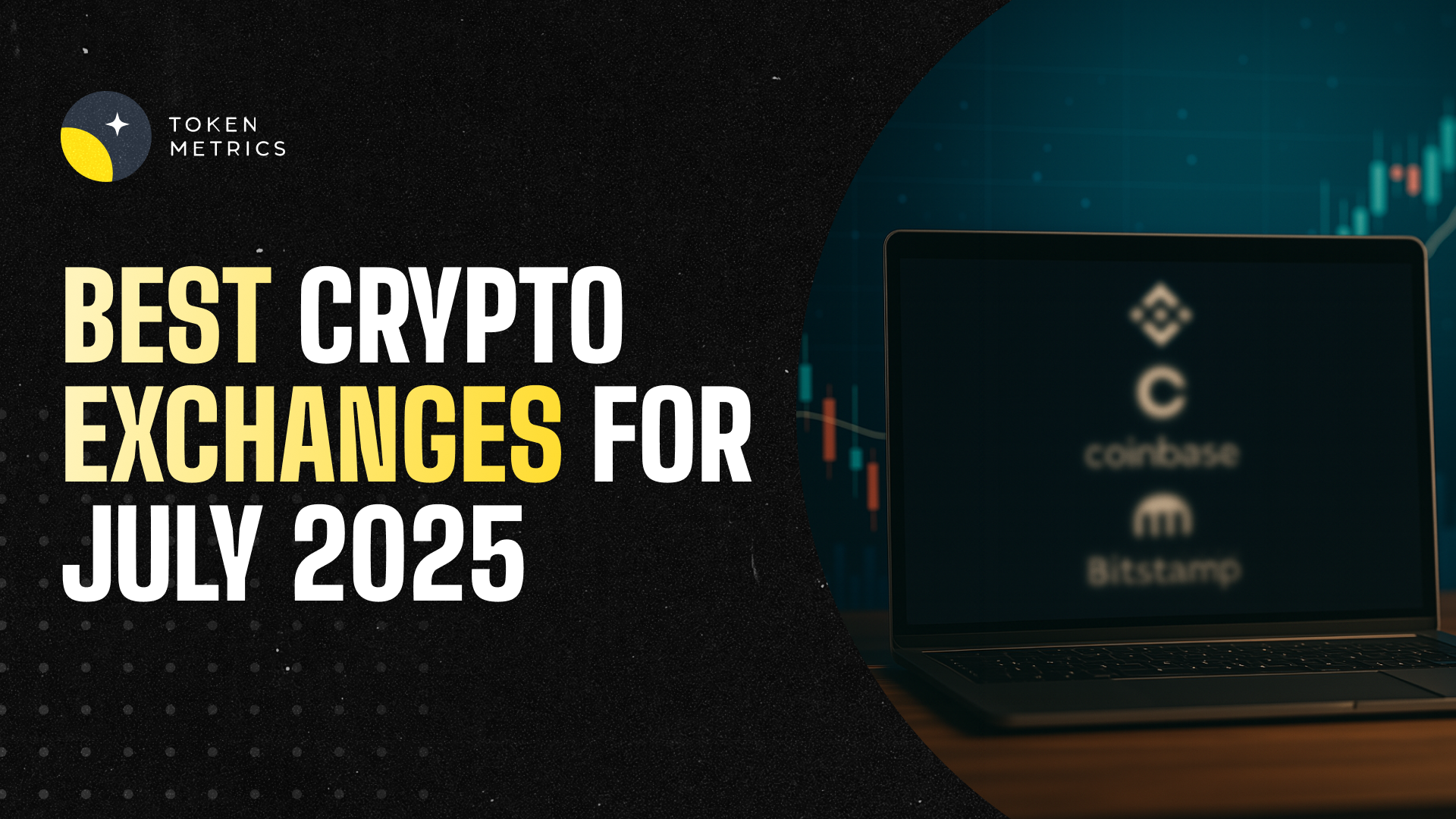
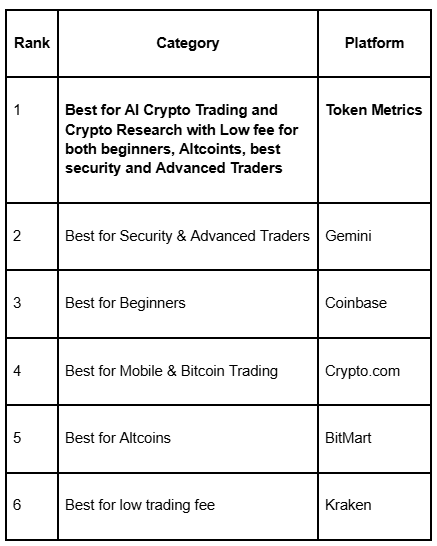







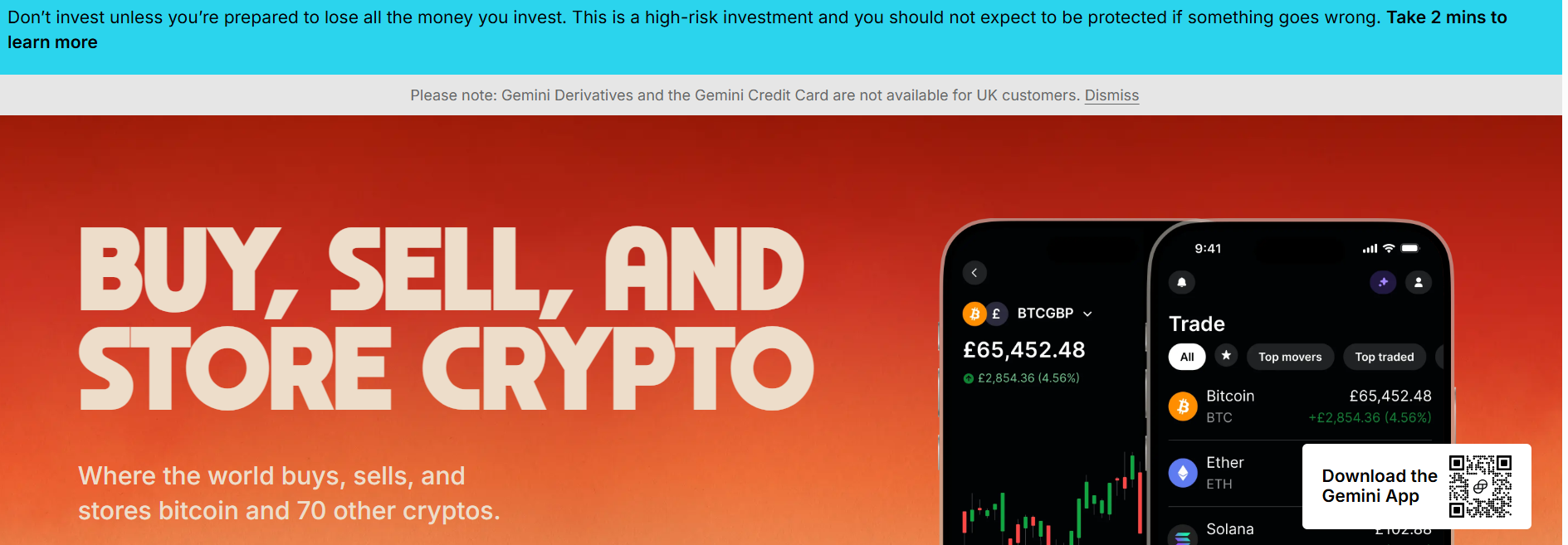
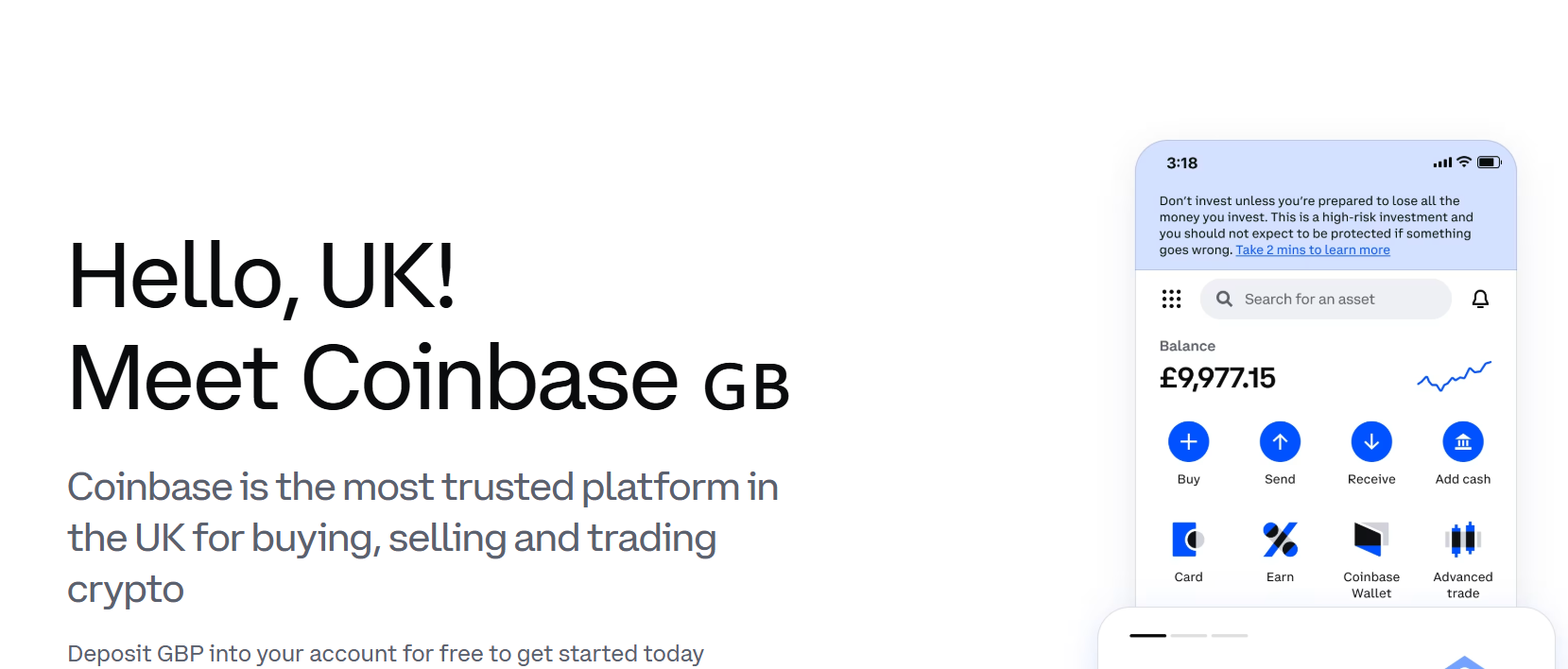
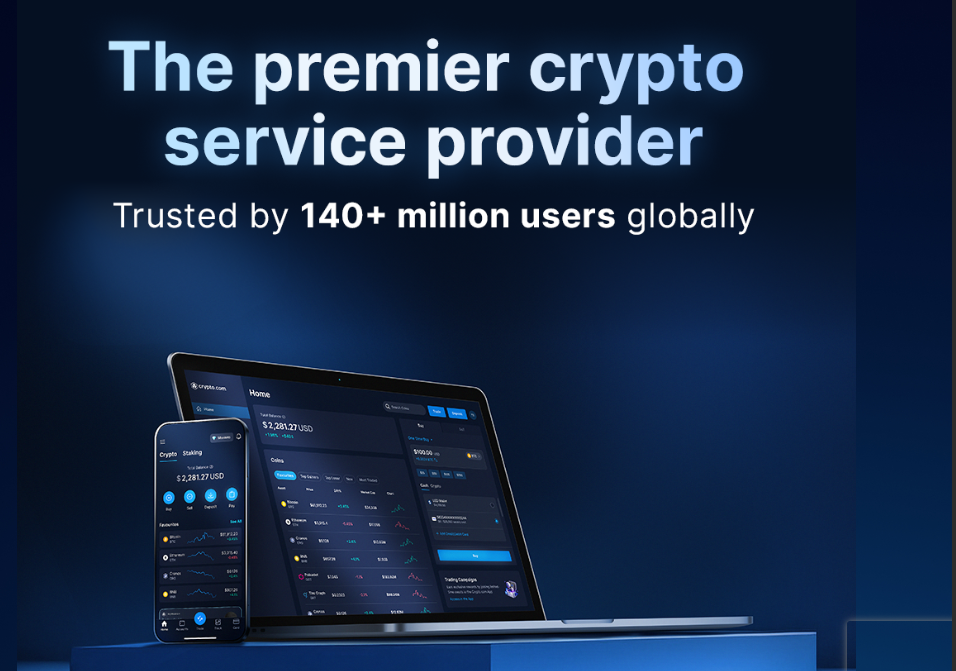
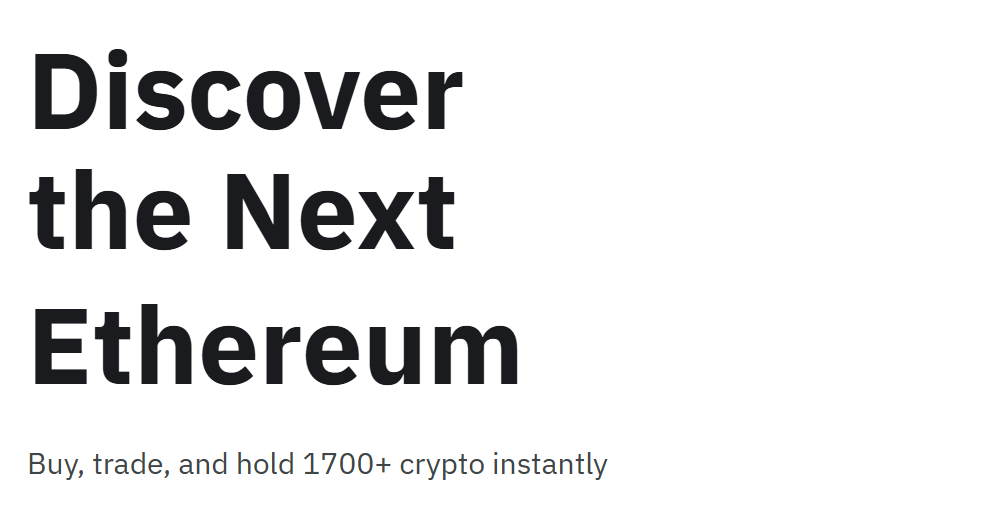
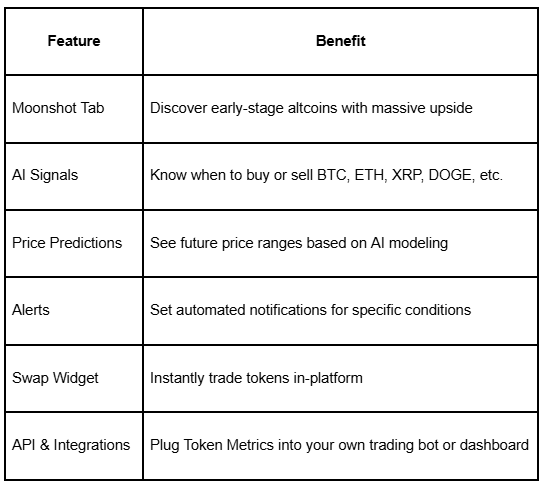
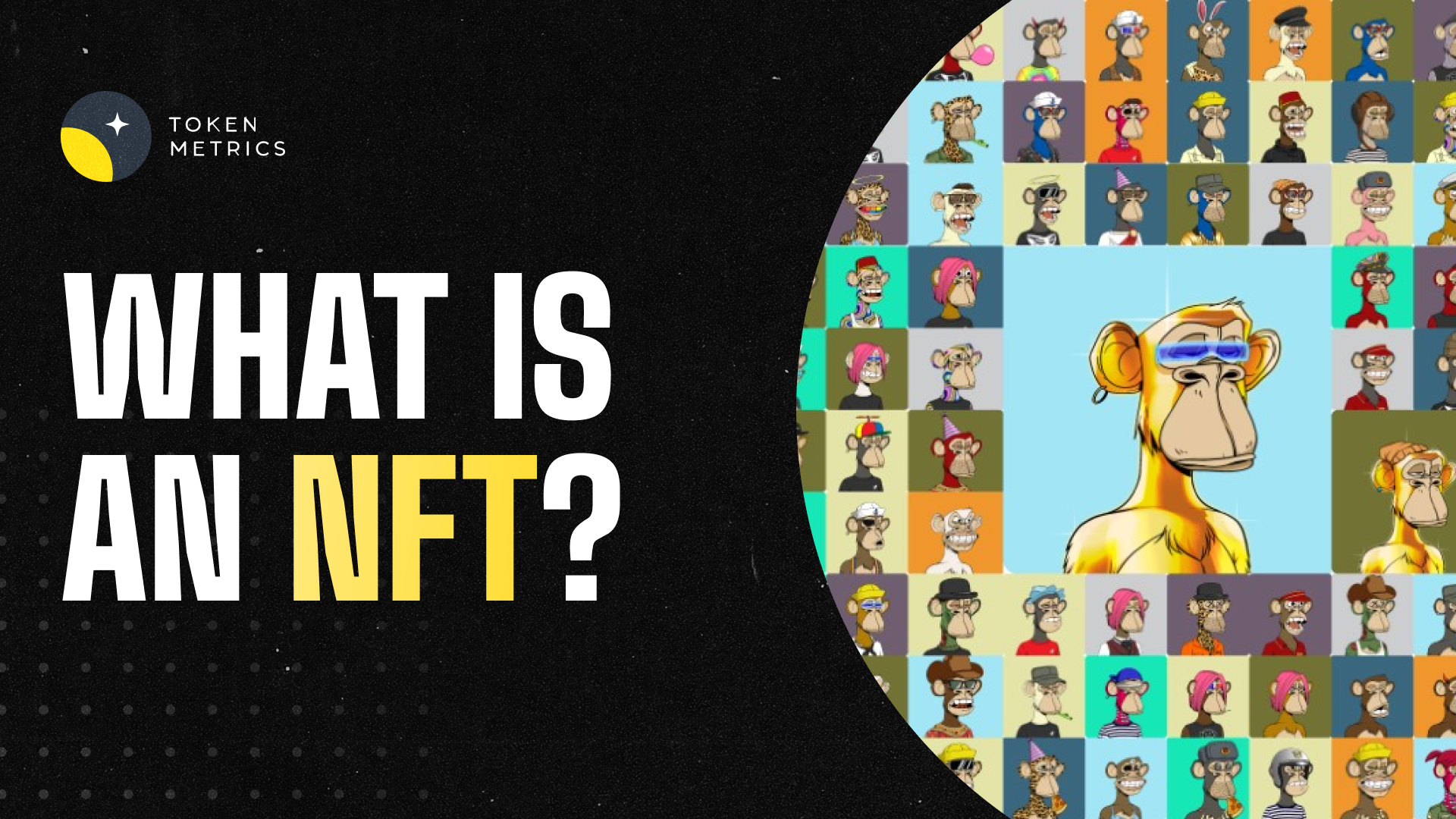

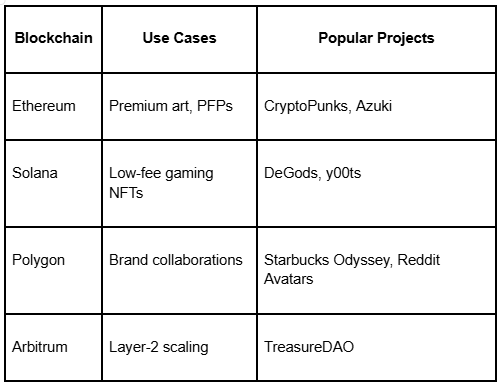
.png)
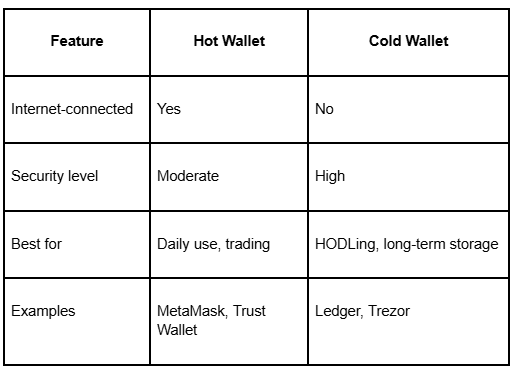

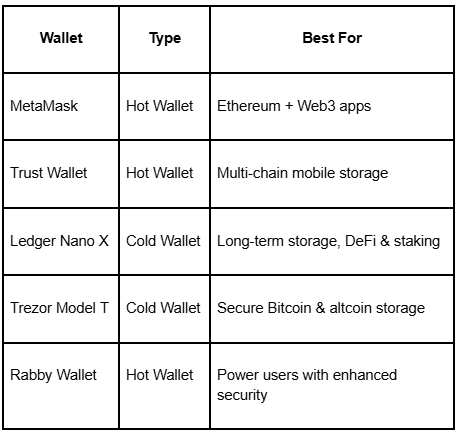




.svg)




.png)